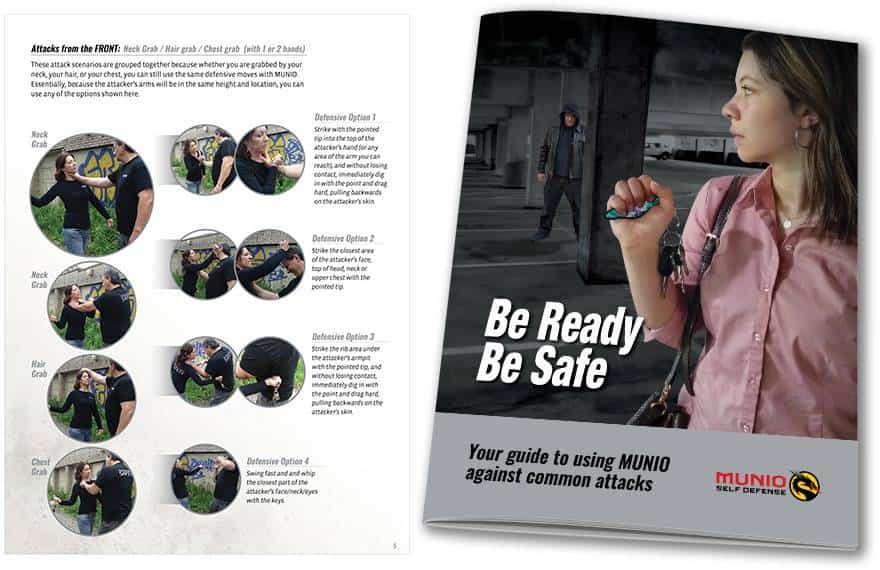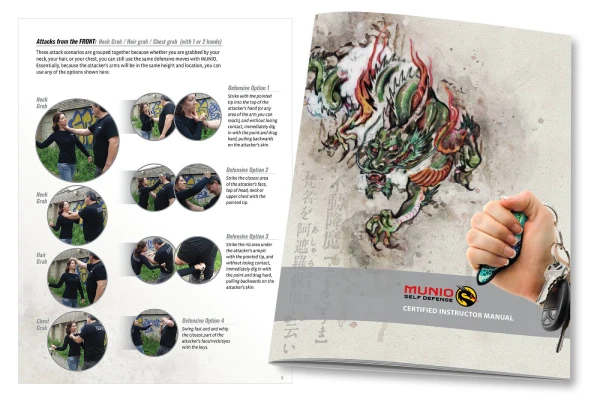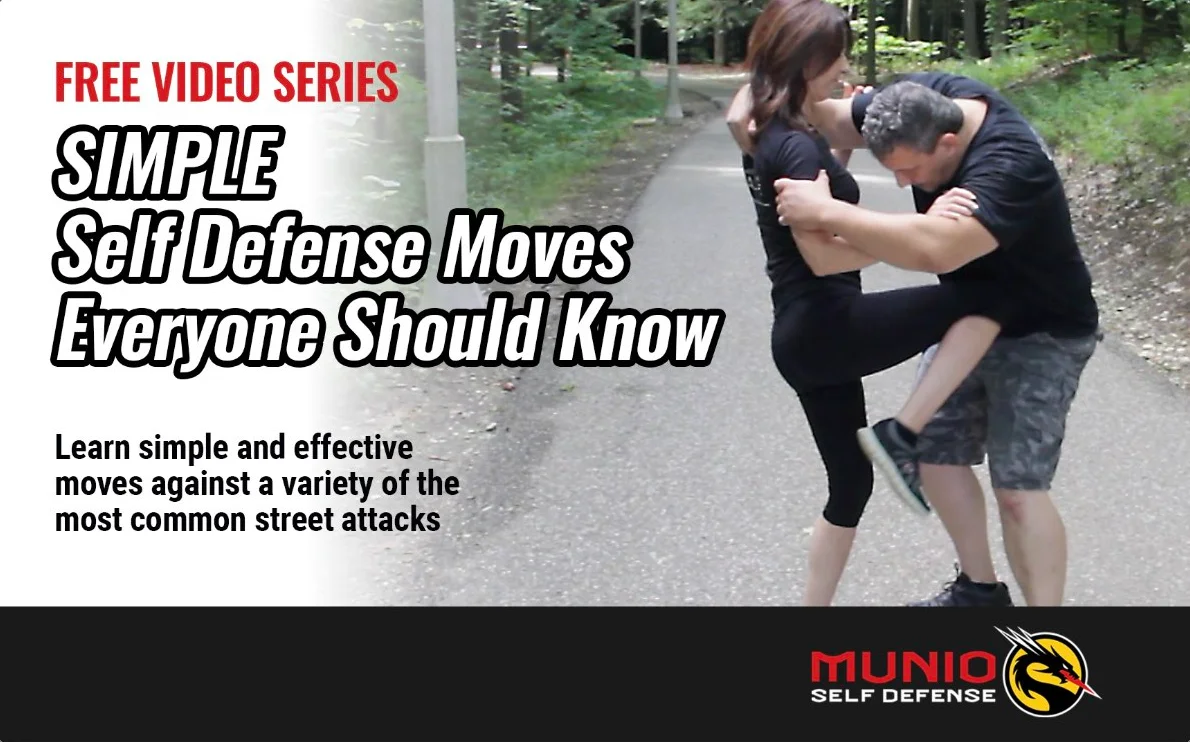As a self-defense instructor, I often have an influx of new college-age students during the summer months sent by their anxious parents to learn some techniques that will help them stay safe on campus. While self-defense classes are certainly important, there are a number of ways college students can protect themselves. Keep reading to learn the eight most critical college campus safety tips to remember.

1. Don’t Put Yourself in Dangerous Situations
Let’s begin with a no-brainer campus safety tip that’s nevertheless all too often neglected but happens to be the most important to college safety: Avoid dangerous situations in the first place.
I don’t mean to be a party pooper, but drinking excessively is one of the biggest risks for ending up in a dangerous situation. When it comes down to it, when you’re alone and under the influence, your chances of sexual assult go up significantly. When you go out to have fun, most likely there’s going to be quite a bit of alcohol around you. You have every right to party and enjoy yourself, but please do it responsibly.
Follow these other guidelines to avoid unsafe situations:
- Don’t go to parties alone, especially if alcohol is served.
- Never leave your drink unattended or accept open drinks from someone you don’t know.
- Never drink and drive.
- Avoid illegal drugs.
- Do not accept rides from people who have been drinking or using drugs, or who drive recklessly or excessively fast. If you find yourself in this type of situation, get out when it’s safe and get an Uber or call a family member or friend.
- Whether you’re under the influence or not, avoid walking alone at night — even in well-lit areas. Always have a friend escort you, or see if you can get a ride from campus security.
2. Be Aware of Your Surroundings
The best self defense starts with situational awareness, the alert observation of both what is happening around you and what you sense is going to happen. It is your personal responsibility to steer clear of potential danger.
Again, just as above, the reality is excessive drinking can make us woefully unaware of ourselves, others, and our environment, as well as knock out all common sense. This can lead to terrible decisions. Not only that, when you’re under the influence, your body just doesn’t work right. You lose the ability to talk down a potential sexual predator, or worst case scenario, fight back physically in order to escape.
Be cautious while walking around campus or using stairwells and elevators. If you see suspicious individuals, leave the area immediately and report them to campus security.
3. Get Familiar with Your Environment
One of the best ways to increase your awareness of your surroundings is to take the time to get to know your environment when you first arrive. As soon as you get to campus, take inventory of the entrances and exits to and from their dorm room and apartment buildings.
Do not leave side or rear entry doors propped open unattended, and if you see one that is, be sure to alert a Resident Manager and/or campus security right away. Double check the locks on your doors and windows. If something isn’t functioning properly, let building maintenance know immediately. Also, if you’ve been away from your room and notice something doesn’t look right with the door or frame, lockset or windows, go to the nearest call box and contact your campus police department. (An increasing number of campuses have begun installing these call box devices to increase safety awareness and expedite response time.) And by all means, do NOT enter the room until they arrive! Bottom line: Always trust your gut instincts.
4. Lock Your Doors
Most residence halls are equipped with quality locking systems. Many dorm room doors have individual locks, deadbolts, and peepholes. Use them!
Always lock your room door when you leave, even if it’s for a short time or you’re just going down the hall. Your door should also be locked while you sleep. If you have a roommate, tell him or her to lock the door behind them when they go out if you’re asleep.
5. Walk Tall
When I used to volunteer for court advocacy at our local domestic violence shelter, I would often share the sidewalks toward the courthouse with downtown college students. I was astounded at the number of students who walked the streets of downtown with their heads looking downward! I don’t care if you’re on a public or private campus — do NOT do this! Always walk to and from buildings with your head up, shoulders back and eyes focused forward. Save the texting for when you reach your destination. Being aware of your surroundings is the first line of self-protection. Don’t discount this important tip.
Looking for protection? Learn more about the pros and cons of the most popular safety keychains.
6. Have a Plan If You Sense Danger
I have taught self-defense classes for women on college campuses who have shared personal stories of being followed during their commute between classes. Although this is an unsettling feeling, my best advice is to get inside the nearest building and/or locate the nearest call box for a campus security escort.
If a building or call box isn’t readily accessible, cross to the other side of the street or walkway to create additional distance. I’ve often been asked by students, “When is it appropriate to run or engage?” Of course, this is a tough question because the answer is: It depends. Here’s a rule I was given by someone I trained with that had a background in law enforcement: If a suspect is farther away than two car lengths, then your chances of outrunning them to a safe location are greater.
7. Be Prepared to Stand Your Ground
On the other hand, if a suspect is closer than two car lengths and shows signs of harmful intent, then you are better off standing your ground. Turning to run in this range with an aggressive attacker will only activate their predatory instinct — in other words, they will chase you until they have you. A suspect with intent can close the distance of two car lengths in less than 1.5 seconds. Personally, I’d rather see what’s coming at me than have my back turned. Ultimately, you are the only one who can make the right decision in such circumstances.
8. Carry Protection
If you do find yourself in a situation where you need to stand your ground, carrying the proper everyday carry tool can mean the difference between successfully fighting off an attack and becoming a statistic. Self-defense tools come in many forms, from pepper spray to lethal weapons such as knives and firearms. Not only are many of these tools prohibited on campus, but they’re also potentially dangerous to the user unless they have extensive training. For this reason, I like to recommend a self-defense keychain to my students, specifically the MUNIO.
MUNIO is what’s known as a force multiplier, which allows users to deliver a more effective blow because the force of the strike is both focused and magnified on the location of the target by the tip. This means virtually anyone can use this tool to effectively disable an attacker. And with its stylish design, relatively small size, and legal status (you can carry it on airplanes and to football games), it’s much more likely to be carried by students regularly.
Shop our MUNIO self-defense keychain collection now.
Self-Defense Is a Way of Life
I’m an advocate for NOT living in fear. That’s why I do what I do — to empower people and build their confidence. Fear is a useful tool to both warn you of and respect danger, but it can also feed a sense of helplessness. It’s important to remember that self-defense isn’t just a class you take, it’s a way of life. Brush up on self-defense moves on a regular basis, follow the tips above, and carry a self-defense keychain or other tool that you feel comfortable using to ensure your personal safety not only while you’re in college but after you graduate.
So keep yourself confident and safe so you can concentrate on what matters most in college — having fun, learning, and growing.









